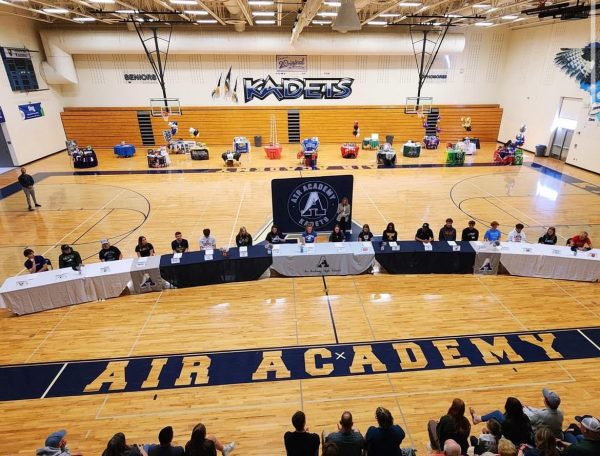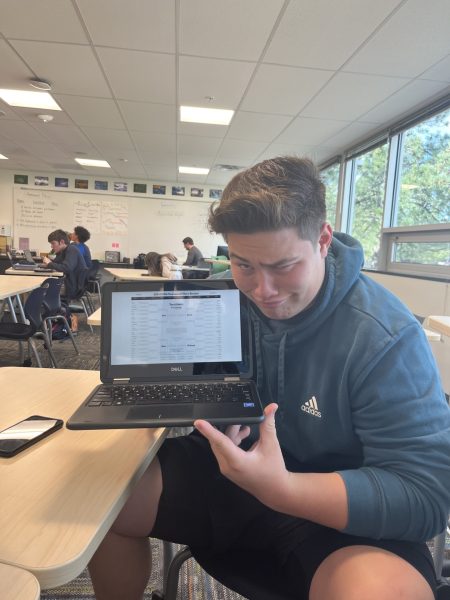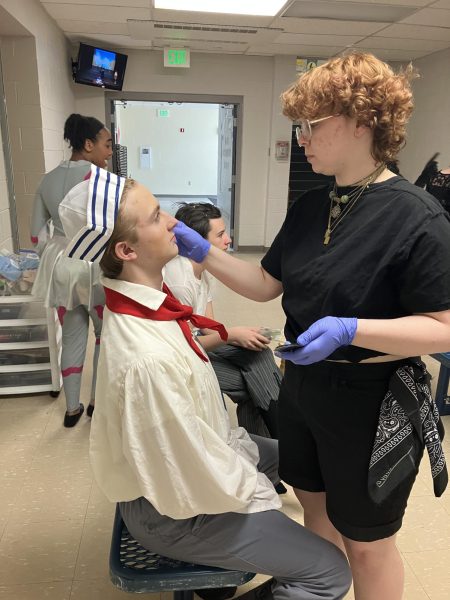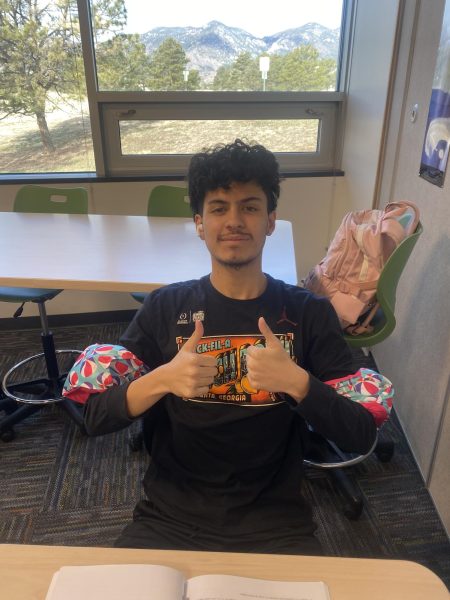Sleep Deprivation is Becoming an Epidemic

For many of us, a cell phone or computer is the last thing we look at before bed (Labeled for reuse)
With technological advances on the rise, new possibilities are boundless and exciting. Though this may be true, several burdens have risen, including sleep deprivation which can be induced by the overuse of technology.
Cell phones have a strong correlation to sleep deprivation in teens. In 2012, the amount of sleep deprived teens skyrocketed (seemingly without cause), but when scientists looked further into the issue, they saw that the amount of cell phone owners increased drastically as well.
As senior Anelise Alvis said, “I got my first phone early in 2013 and it definitely started to cut into how much time I slept.”
It is recommended that teens get at least nine hours of sleep each day. However, according to PBS, over 50 percent of teens get less than seven.
Blue light emitted from cell phones is a likely culprit for this lack of sleep. The light tricks the brain into thinking it’s daytime, which, in turn, inhibits the production of the chemical melatonin, which is the chemical that makes people feel tired. Additionally, looking at texts or checking Instagram is both mentally and emotionally stimulating. Stimulating the brain before going to bed makes it harder for the brain to relax and therefore delays the sleeping process.
“My phone is the last thing I look at before I go to bed,” said sophmore Chris Goetzmann.
Why should this matter?
Sleep deprivation can affect school in many ways.
According to psychology teacher Mike Hillstrom, “[People’s] short term memory and psychomotor skills are compromised.”
Psychomotor skills involve coordination and activities as simple as writing. Another thing that sleep deprivation inhibits is your higher level thinking skills. This can lead to poorer performance in subjects such as math.
Sleep deprivation is very common in teens. A 2010 study by The Journal of Adolescent Health reveals that a mere 8 percent of high school teens get the recommended amount of sleep. Goetzmann is one of them.
“I ususally get about six or seven hours of sleep on school nights, and less on weekends,” Goetzmann noted.
As Hillstrom puts it, “If I had a nickel for every time I said to a student ‘How are you?’ and they said ‘Tired’, I could retire right now.”
Several people are quick to blame early start times for school as a cause for sleep deprivation.
“I don’t want to go to bed at 9 p.m just to get enough sleep before I have to wake up,” Goetzmann said. “If school started later it would be easier to get enough sleep.”
While several families believe later start times can help, it’s something that is out of parents’ and kids’ control. Hillstrom illuminated another point of view:
“Think about when you know you have a two hour delay. What you’ll usually say is ‘Oh I can stay up later because I have more time to sleep.'”
Simple, effective solutions are available.
“Parents just need to get their kids to unplug,” said Hillstrom. Leaving approximately 30- 60 minutes without screen time before bed can be immensely effective. According to a study by Health e Heart, people who spend five hours a day on their phones were a little more than 50 percent more likely to have trouble falling asleep.
Alvis has started taking matters into her own hands.
“Usually I try to write in my journal and get off my phone before bed time so that I can fall asleep sooner,” she said.
By simply replacing phone time by reading a book or taking a bath right before bed, sleeping will improve. Changing habits even slightly can have immense benefits on sleep, which is crucial to living a healthy and happy life.

Hey, I'm Christian Alvis. I'm a Sophmore at AAHS and this is my first year writing for the Jetstream Journal, but hopefully not my last!












